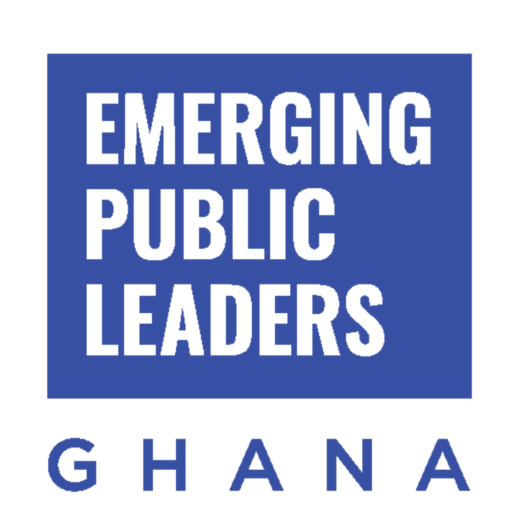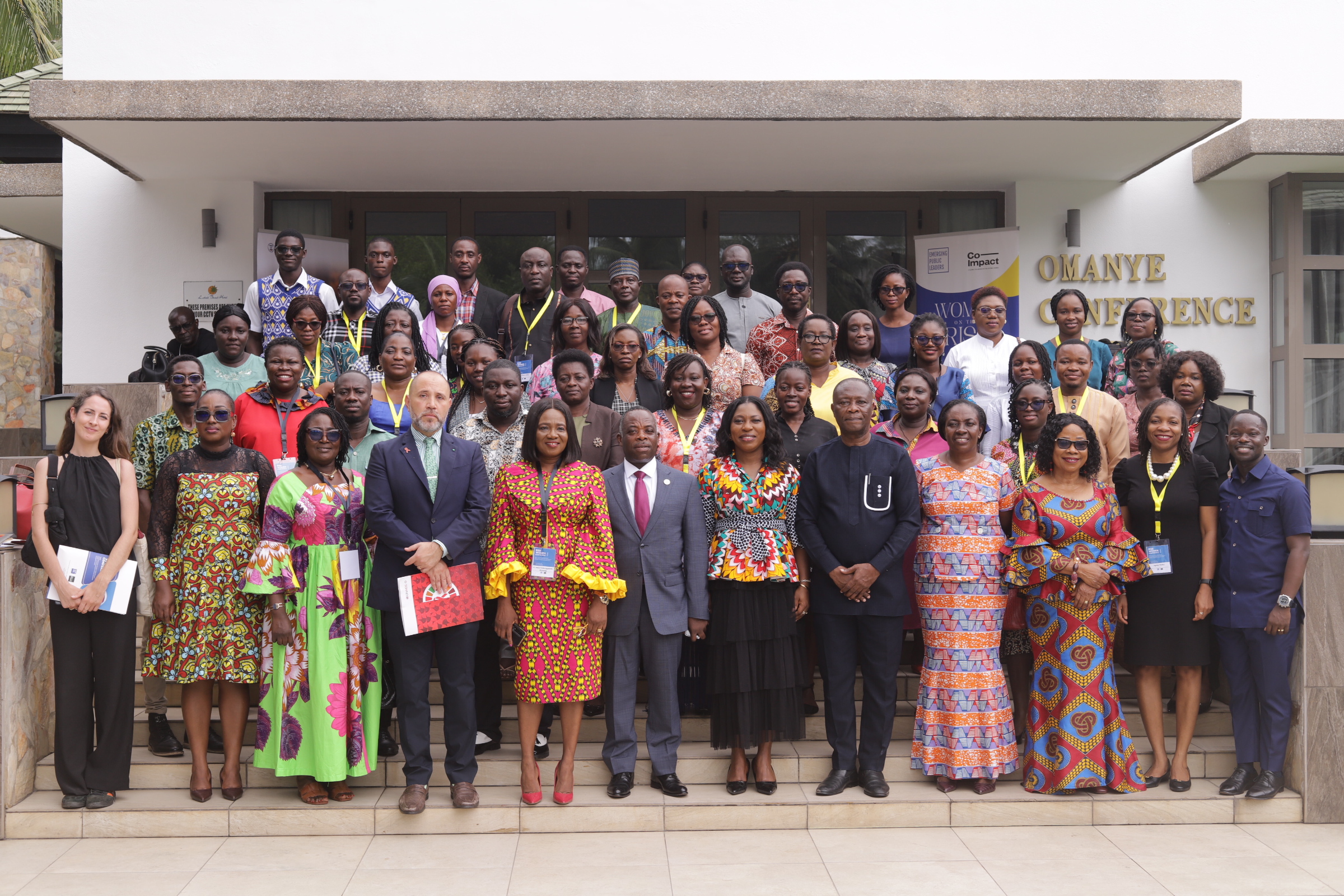CONFERENCE TITLE: EMPOWERING WOMEN FOR ECONOMIC TRANSFORMATION: A PATH TO GENDER EQUALITY AND INCLUSIVITY
CONFERENCE THEME: ACCELERATING GENDER EQUALITY: ENDING WOMEN’S POVERTY AND EMPOWERING ALL TO ACHIEVE SUSTAINABLE DEVELOPMENT GOAL 5
DATE: AUGUST 13th – 14th, 2024, AT LABADI BEACH HOTEL, ACCRA.
Background/Introduction
The RISE Women Conference 2024, organised by Emerging Public Leadership and Co-Impact, was held from 13-14 August 2024 in Accra, Ghana, titled Empowering Women for Economic Transformation; A Path to Gender Equality and Inclusivity and themed: Accelerating Gender Equality: Ending Women’s Poverty and Empowering All To Achieve Sustainable Development Goal 5.
The two-day conference sought to contribute to accelerating progress towards gender equality by specifically addressing the issue of women’s poverty while emphasising the importance of empowerment for all individuals. The specific objectives of the conference were to (i) identify key actions and investments required to end women’s poverty and advance gender equality, (ii) emphasise the significance of gender-responsive policies and programmes in bolstering institutional capacity to address systemic inequalities, and (iii) foster collaboration among partners to mobilise resources and support effective strategies for promoting gender equality nationally and internationally.
Participants of the conference came from public sector organisations, such as the Civil Service of Ghana and the Ministry of Gender, Children and Social Protection; Civil Society organisations and Non-Governmental Organizations; Academia and Research Organizations and Development Partners; had insightful speeches, panel discussions and evidence-based research presentations, that elaborated factors contributing to women’s poverty in Ghana including institutional weaknesses and traditional norms that perpetuate gender inequality, affecting women and youth; limited financial resources hinder gender equality initiatives globally.
Key Issues
The key issues identified as contributing to gender disparity in Ghana include:
- Entrenched negative cultural norms and perceptions about gender have created difficulties in empowering and enhancing women’s participation in economic transformation.
- Weak political will to develop, enact and implement gender-sensitive policies and regulations to support women’s social and economic empowerment.
- Non-availability of gender-disaggregated data for policymaking affecting gender policy design, targeting, and implementation.
- There is a widening gender digital gap, evidenced by inadequate access to information and low digital literacy, especially in rural areas.
- Low financial inclusion is evidenced by a lack of access to finance, a lack of specific financial products for women and women businesses, and low entrepreneurial support systems targeting women.
- It is deepening poverty and widening rural and urban poverty among women, creating vulnerabilities, including gender-based violence.
Recommendations
The conference proffered recommendations for addressing the identified gaps and key issues, emphasising the need for holistic strategies and collaborations for inclusive development and closing the gender gap. Key recommendations included:
- They are redefining and contextualising gender and the challenges faced by women to help identify and address these peculiar challenges.
- Creating an effective balance in identifying and addressing the specific challenges of the multiple categories of women, as urban women experience poverty differently from rural women. They are improving access to quality education for women in rural areas. Support programmes should be designed to support skilled urban women and women involved in the rural economy.
- Provision of financial resources (loans or grants or combination) through existing institutions or a women’s bank for women to support entrepreneurial ventures, especially those in the informal sector, to reduce poverty among women in line with SDG, particularly goal 5.
- Stakeholders must work with the Ministry of Gender, Children, and Social Protection to develop the necessary legislative instruments to fully implement the Affirmative Action Bill.
- Elaborating a structure for a proper gender equity architecture by identifying areas where policy reforms are needed, stimulating the adoption of these reforms, and ensuring their implementation following the enactment of the Affirmative Action Bill.
- Public sector organisations must establish a functional gender policy backed by thorough institutional capacity assessments to identify areas for improvement and growth. This policy should enhance female representation in management and leadership, create women role models in strategic positions, and support gender-sensitive leadership by including key gender targets in the public sector’s performance indicators.
- Creating a supportive environment to increase female representation in decision-making positions at the local, regional, and district levels and enhance strategies for protecting women from violence, discrimination, and exploitation.
- Making available gender-disaggregated data to support policy formulation and implementation.
Call to Action
The conference ended with a call to action to specific partners and actors to realise the objectives of women’s empowerment and economic transformation:
MoGCSP should work with relevant stakeholders after the president’s ascent to develop the necessary legislative instruments to support the full implementation of the Affirmative Action Bill. The implementation of affirmative action in the public service will be supported by the Office of the Head of Civil Service, CSOs and NGOs, Academia, and the EPL.
MoGCSP should develop legislative and administrative frameworks and structures to enhance gender equity. This includes identifying policy reforms and implementing them following the enactment of the Affirmative Action Bill. The Office of the Head of Civil Service could support the Ministry’s development and roll-out of these frameworks.
Public institutions such as the Ghana Enterprises Agency and development partners should continue to provide targeted financial resources and business development interventions to support women entrepreneurs, especially those in the informal sector. In doing so, there should be a balance in the support for urban and rural women, including improving rural education and tailoring programmes to the needs of each specific group.
All stakeholders (Government, CSOs and academia) should develop information resources and, through research, contribute to redefining and contextualising gender challenges faced by women.
EPL Ghana should assess gender policies in the public sector to improve female representation and leadership. Additionally, EPL, working with the Public Services Commission through multiple initiatives, should enhance female representation in decision-making in the public service and create awareness to enhance protection against violence and discrimination.
Furthermore, EPL, working with the Office of the Head of Civil Service, should provide capacity and technical support to increase the collection, preparation, and use of gender-disaggregated data to support policymaking and implementation.
Conclusion
Stakeholders and participants unanimously commended EPL Ghana and other stakeholders for organising this important conference and urged EPL Ghana and other relevant government agencies to ensure that the recommendations made here are implemented.


